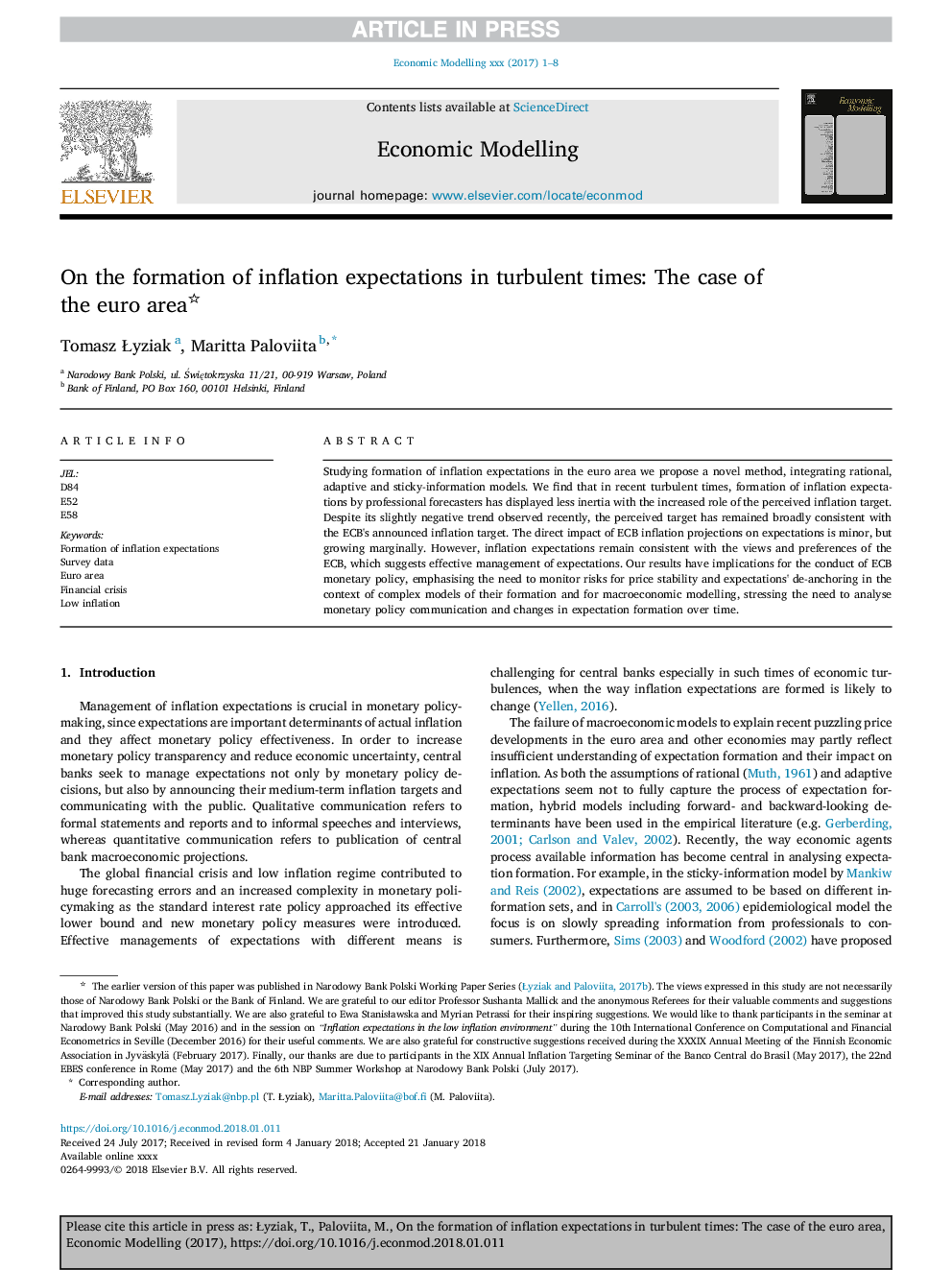| Article ID | Journal | Published Year | Pages | File Type |
|---|---|---|---|---|
| 7346909 | Economic Modelling | 2018 | 8 Pages |
Abstract
Studying formation of inflation expectations in the euro area we propose a novel method, integrating rational, adaptive and sticky-information models. We find that in recent turbulent times, formation of inflation expectations by professional forecasters has displayed less inertia with the increased role of the perceived inflation target. Despite its slightly negative trend observed recently, the perceived target has remained broadly consistent with the ECB's announced inflation target. The direct impact of ECB inflation projections on expectations is minor, but growing marginally. However, inflation expectations remain consistent with the views and preferences of the ECB, which suggests effective management of expectations. Our results have implications for the conduct of ECB monetary policy, emphasising the need to monitor risks for price stability and expectations' de-anchoring in the context of complex models of their formation and for macroeconomic modelling, stressing the need to analyse monetary policy communication and changes in expectation formation over time.
Related Topics
Social Sciences and Humanities
Economics, Econometrics and Finance
Economics and Econometrics
Authors
Tomasz Åyziak, Maritta Paloviita,
